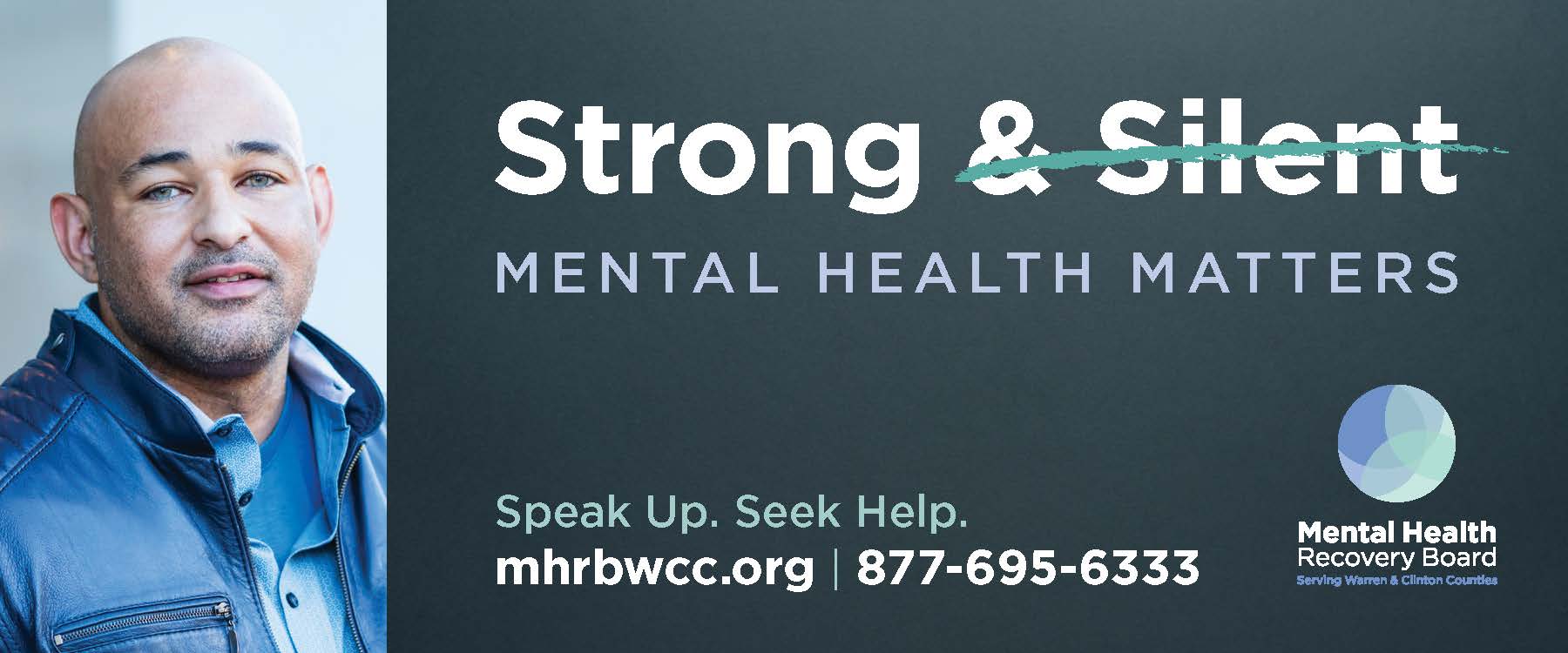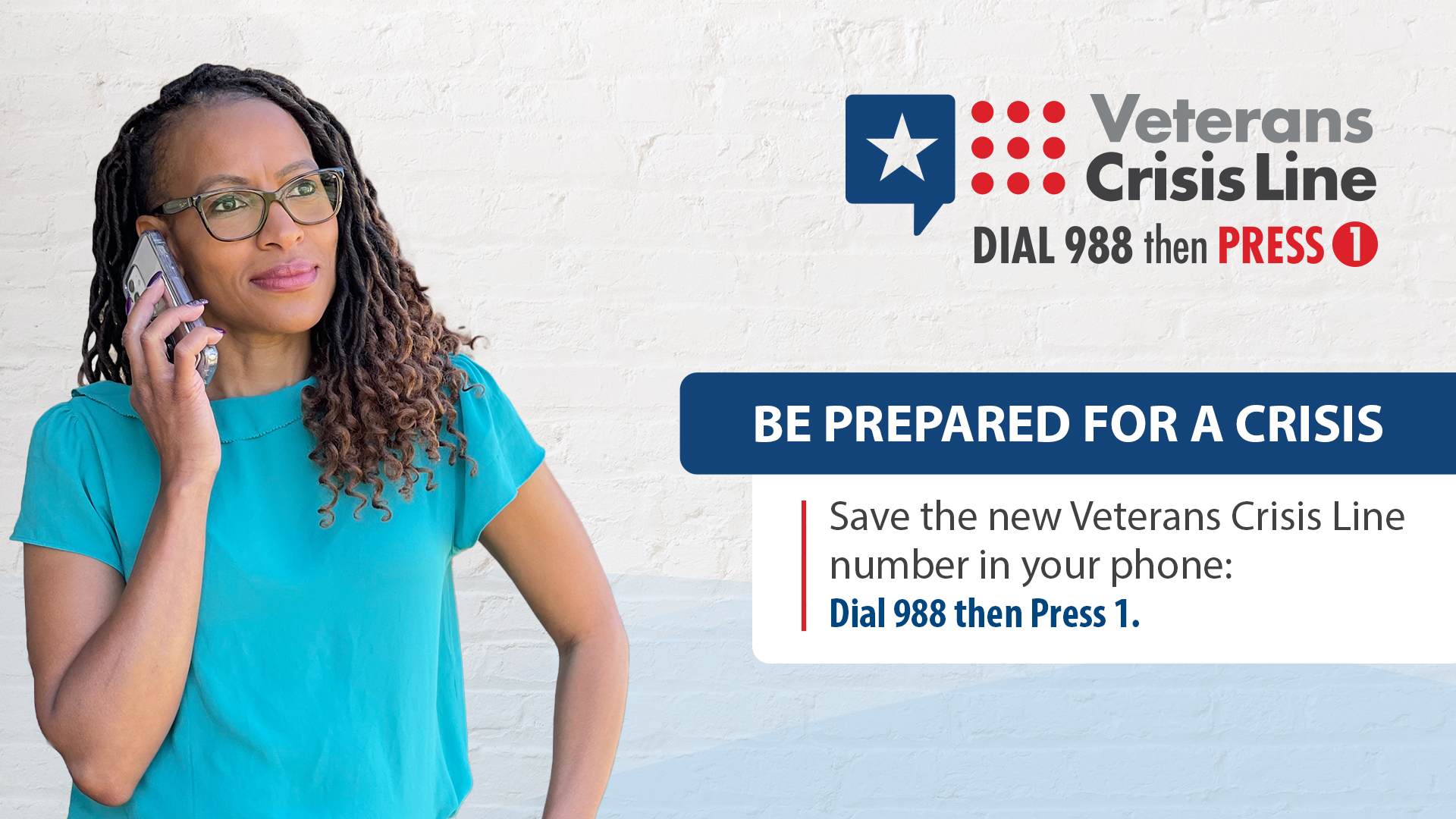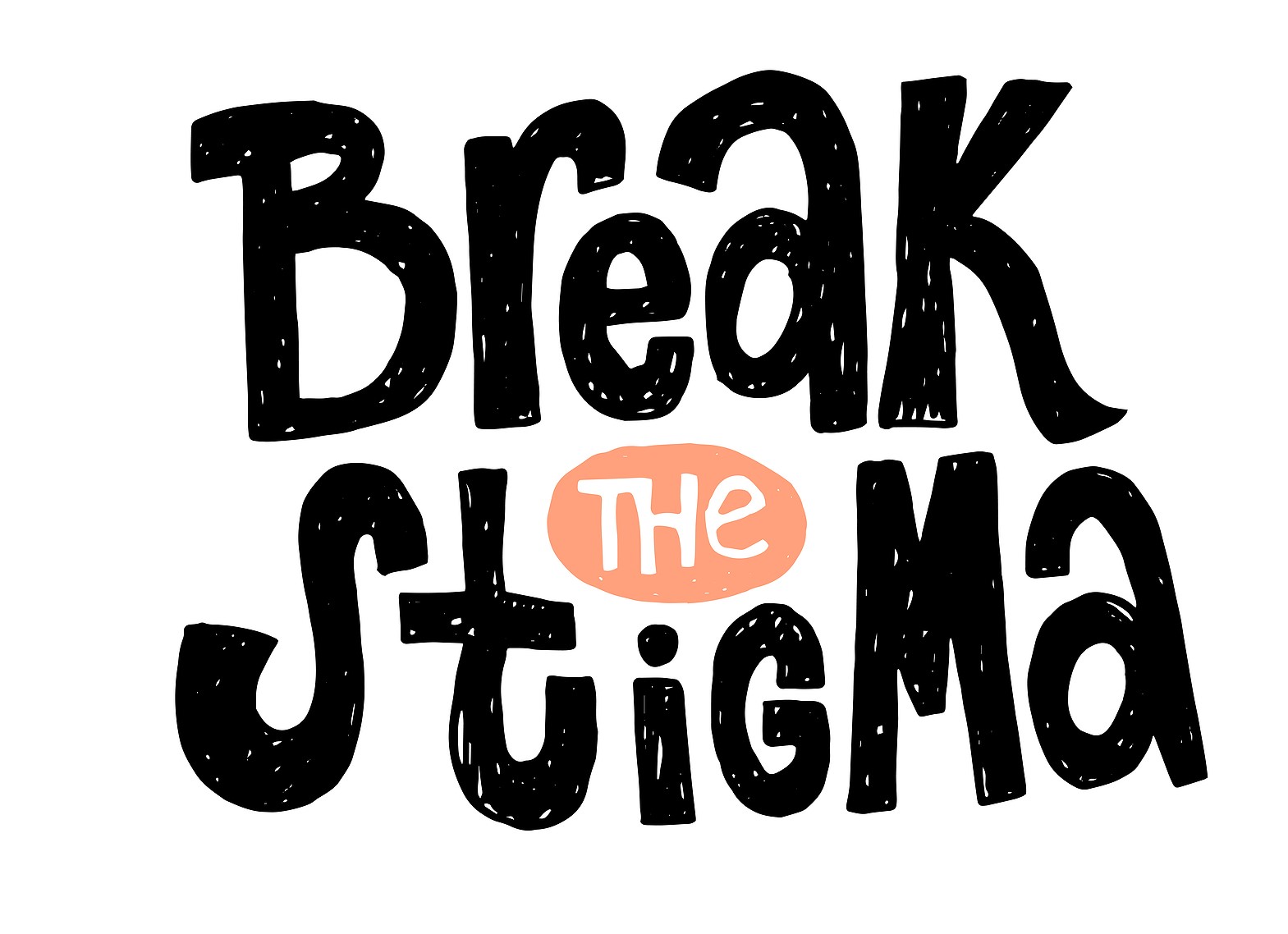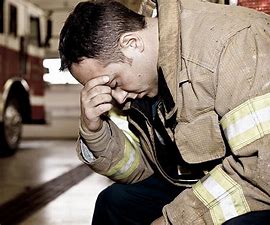Prevention & Resources
Note: With a few exceptions, MHRB does not link to organizations or resources that are located outside of our service area or that do not have a local presence.
Anti-Bullying Resources
- A Comprehensive Technical Package for the Prevention of Youth Violence and Associated Risk Behaviors
- National Bullying Prevention Center
- StopBullying.gov
For Teachers
For Parents

Why should men focus on their mental health?
According to the Anxiety & Depression Association of America, men are less likely to receive treatment or be diagnosed with a mental illness - even though they are less likely to have a mental illness than women.
The main reason? Stigma. Men often see asking for help as a sign of weakness. They stay silent. That silence can lead to various other problems as a result.
What are the most common symptoms of mental illnesses among men?
The Nartional Institute of Mental Health (NIMH) says that men and women can develop a mental illness, but men may exhibit different symptoms, such as:
- anger, irritability, aggressiveness
- misuse of alcohol, drugs, or both
- feeling flat or having trouble feeling positive emotions
- engaging in high-risk activities
Read more at https://www.nimh.nih.gov/health/topics/men-and-mental-health.
Where can men turn for help?
Help is as close as your phone. Contact any of the provider agencies in our Community Provider Guide, or call the board office at (513) 695-1695.
Note: With a few exception, MHRB does not link to organizations or resources that are located outside of our service area or that do not have a local presence.
Mental Health Resources
Note: With a few exceptions, MHRB does not link to organizations or resources that are located outside of our service area or that do not have a local presence.
Opiate, Drug & Alcohol Addiction Resources
When addiction affects you and your family, all that matters is finding help quickly. Here are a few resources that can help you learn more about addiction, find first steps to help, or learn ways to prevent addition:
- Signs of Opiate Addiction
- Signs of Alcoholism
- Alcohol & Health
- Understanding Drug Use and Addiction
- Rethinking Drinking
- Start Your Recovery
- Addiction Policy Forum Resource Center
- US Department of Health & Human Services - Opioid Addiction Prevention and Treatment Information
- Treatment Options for Addiction to Painkillers (Opioids)
- Addiction & Mental Health Terminology Guide
- Clinton County Opioid Drug Plan
- Warren County Opioid Reduction Plan
When you're ready, these agencies and groups can offer information about treatment options for substance addiction:
- You-Turn Recovery Docket - Clinton County
- Warren County Medication Assisted Treatment Program (Warren County Common Pleas Court)
- Talbert House - Lebanon and Wilmington locations
- Nar-Anon
- Al-Anon & Alateen
Note: With a few exceptions, MHRB does not link to organizations or resources that are located outside of our service area or that do not have a local presence.
Recovery Resources
For individuals in recovery from mental health and/or addiction issues, the right resources for living make all the difference in keeping that recovery moving forward. Housing options, support groups, social opportunities and more can combine to bolster and sustain recovery.
Tools for the Recovery Journey
- Recovery Basics
- What Individuals in Recovery Need to Know About Wellness
- Guiding Principles of Recovery
Recovery Housing and Other Living Options
Support Groups & Resources
Trauma Informed Care Learning Community
Warren and Clinton County organizations are invited to participate in the Trauma-Informed Organization Learning Community. We provide:
- resources
- free training and
- group collaboration.
Participating organizations will get assistance to modify practices so that you are more cognizant of the trauma your customers may have suffered and are reacting to, as well as the secondary trauma that staff can experience. MHRS is funding this community.
Our Purpose
Trauma-Informed Care (TIC) is an approach that explicitly acknowledges the role trauma plays in people’s lives. TIC means that every part of an organization or program understands the impact of trauma on the individuals they serve. Adopting a trauma-informed care model promotes a greater sense of safety, security and equality. Our TIC Initiative is being directed by the six Guiding Principles of Trauma-Informed Care from the Substance Abuse and Mental Health Services Administration (SAMHSA).
For more information about the Trauma-Informed Organization Learning Community, contact MHRBWCC at 513-695-1695 or email pahting@mhrbwcc.org.
Is Trauma-Informed Care helpful to my organization?
A TIC approach can be implemented in any type of service setting or organization. This approach is much more global and should be distinguished from trauma-specific treatments which are designed specifically to address the consequences of trauma and to facilitate healing.
Thus, this isn’t just for behavioral health organizations! Because of the prevalence, we interact with individuals everyday who have experienced traumatic events. All organizations can become trauma-informed — including domestic violence programs, children’s services, court systems, jails, probation offices, job and family services, food pantries, homeless shelters, medical providers, developmental disabilities, schools, etc.
Note: With a few exceptions, MHRB does not link to organizations or resources that are located outside of our service area or that do not have a local presence.
Suicide Prevention Resources
- Local Crisis Line: (877) 695-NEED (6333)
- National Suicide Prevention Lifeline: (800) 273-8255
- Trevor Project: (866) 488-7386
- Suicide Prevention Coalition of Warren County: (513) 695-1695 (housed at MHRBWCC office)
- Warren County suicide statistics 2024
- Recognizing Warning Signs of Suicide
- For parents: Talking to Kids about Suicide
- For parents: Talking with Youth about Suicide
- Ohio Suicide signs poster
Specific to Older Adults
Specific to Men
- Suicide Prevention Center - Men and Suicide
- Why Men Commit Suicide - The Three Warning Signs Most People Miss

Note: With a few exceptions, MHRB does not link to organizations or resources that are located outside of our service area or that do not have a local presence.
Veterans Crisis Line
(800) 273-8255, press 1 or Confidential Chat at VeteransCrisisLine.net
Local Veteran Resources

Vaping Resources
For Youth:
- Become a Smoke-Free Teen/Quit Vaping
- Calling it Quits: Resources for Teens on Vaping & Niccotine Cessation
- Ohio Department of Health: Tobacco & Vaping Use Prevention
For Parents:
Note: With a few exceptions, MHRB does not link to organizations or resources that are located outside of our service area or that do not have a local presence.
Teens have a lot on their plates these days - school and test pressures, college entrance needs, community and social involvement. It can all add up to feel very overwhelming. Whether you're a teen or the parent of a teen, here are some places to turn to learn more about how to help.
| Resources for Teens | Resources for Parents |
Resources from MHRB provider agencies
Videos from Butler Behavioral Health and Substance Abuse Prevention Coalition
MHRB YouTube channel - to see agency and MHRB videos
MHRB
- Service Array Matrix
- Benefit Rules
- Presentation Slide Deck
- MHRB COVID-19 Resources for Parents & Families
Beech Acres Parenting Center
- Back to School Quick Tips
- Beyond the Classroom
- Kinship Program - Clinton County
- Kinship Program - Warren County
- Parent Connext
- The Character EffectTM
Butler Behavioral Health
NAMI of Southwest Ohio
Solutions Community Counseling & Recovery Center
Talbert House

Note: With a few exceptions, MHRB does not link to organizations or resources that are located outside of our service area or that do not have a local presence.
Understanding & Ending Stigma
Rejection, bullying and discrimination. These are just some of the things people with mental health conditions face every day. That makes getting treatment and starting the recovery journey more difficult. In short, it creates stigma that can stand in the way of progress.
Moving beyond the stigma against mental health and addiction is going to take an investment of time and outreach to educate everyone about the effects that words and actions have on people living with these concerns. We've gathered a list of resources to tap for more information. Help us share them, and let's move beyond and end the stigma.
Resources:
- Stigma as a barrier to mental health (video)
- Three ways to fight the stigma of mental illness
- Stigma or discrimination: Language matters (MHA)
- Words matter: Terms to use and avoid when talking about addiction
- The key to breaking mental health stigma: Online education (MHA)

Note: With a few exceptions, MHRB does not link to organizations or resources that are located outside of our service area or that do not have a local presence.
Responding to crises can lead to trauma for anyone involved, but none more so than those who are first to get there: police, firefighters, emergency medical technicians, doctors, nurses, just to name a few.
That's why we've developed this list of resources specifically for first responders. These pieces may provide a place to consider first steps to cope with the trauma you've experienced. If and when you need additional help, reach out to the providers in our area.
Trauma and First Responders: When the Helpers Need Help
First responders: Behavioral Health Concerns, Emergency Response, and Trauma
Burnout, Self-Care, and COVID-19 Exposure for First Responders
First Responders: Tips for Taking Care of Yourself (Centers for Disease Control)
Surviving the Job: Emotional Self Care for First Responders (International Fire Chiefs Assoc)

Past webinars for behavioral health professionals
Counselors, social workers, and others who treat people with mental health and addiction disorders muc keep up on the latest changes and updates in their fields. Training adn continuing education are crucial to maintaining strong skills and abilities to help individuals in care.
The following webinars from Dr. Jason Weisman of Sparks Psychological Services are provided to professionals to be of assistance. Although no CEUs can be awarded to watching, they may provide an updated look at some aspects of counseling and care that can be helpful to professionals in the mental health and addiction fields.
If you would like to view them, please email jcummings@mhrbwcc.org for a link, as these are not open to the general public.

Note: With a few exceptions, MHRB does not link to organizations or resources that are located outside of our service area or have a local presence.
The deaths of several black Americans while involved with police has ignited a national conversation about racism and the trauma that black Americans have experienced for hundreds of years. And while many black Americans have been talking about that trauma for some time, some Americans are just now learning about it.
Our job as a board is to ensure the system of mental health and addiction services available to our community residents addresses all care needs, including trauma. That's the reason for this list of resources and helpful information. It's certainly not exhaustive, but it serves as a starting point to learn and continue the conversation.
FOR ADULTS
Racial Trauma is Real: The Impact of Police Shootings on African Americans
The Little Understood Mental health Effects of Racial Trauma
Systems of Trauma: Racial Trauma (Family & Children's Trust Fund of Virginia)
Workplace: Care for Yourselves and Your Team (UC Davis)
Curbing the Pandemic Called Racism (YouTube)
FOR CHILDREN
Childhood Traumatic Grief: Information for Parents and Caregivers
Parenting After Trauma: Understanding Your Child's Needs
EmbraceRace's Children's Book List for Anti-Racist Activism
"We're Different, We're the Same" (Sesame Street)
FOR FAMILIES
Family Care, Community Care, and Self Care Tool Kit: Healing in the Face of Cultural Trauma

What is 'mental wellness'?
Contrasted with mental illness, mental wellness is what comes from feeling balanced, connected to others, and ready to meet life's challenges. It also coincides with physical health. eating healthy, getting enough sleep, and staying active all help to improve and maintain your emotional health, too.
What are examples of mental wellness?
There are many! Just a few are finding the positives in life, doing things like walking or hiking, eating and sleeping well, and taking breaks during your work day. Any of these, alone or in combination, can increase that sense of well-being in your life - and in turn reduce stress, anxiety, and depression.
What can I do?
Lots of things! Here are some:
- Do things to cope with everyday stress. Take up exercise, do yoga, or just take a walk.
- Get quality sleep. Make sure you are going to bed at about the same time each night so you get enough sleep.
- Strengthen your social connections. It doesn't have to be romantic, but healthy relationshps with friends, family, neighbors and others influence how we feel about ourselves. And that can protect our health, too.
- Be mindful. Be completely aware of your present and all that is happening in the moment. Deep breathing or taking a stroll are great options for this!
Source: https://www.nih.gov/health-information/emotional-wellness-toolkit

A Moment of Care Can Save a Life
It doesn’t take much to check in — a quick text, a phone call, or just asking, “How are you?” can make a world of difference to someone struggling. We can all reach out and connect to help prevent suicide.
Need Help Now?
Help is always available. You are not alone.
Call or Text the Suicide and Crisis Lifeline at 9-8-8 or the local hotline at 877-695-6333.
Signs to Watch For
● Extreme changes in mood or behavior, including being suddenly upbeat after a period of depression.
● Withdrawing from friends, family, and activities
● Talk of feeling hopeless, worthless, or being a burden
● Giving away possessions or saying goodbye
● Mention of self-harm or suicidal thoughts (including on text/social media)
If someone you know is showing any of these signs, don’t wait to seek help. Call or text 988 or call 877-695-6333.
Tips for Starting the Conversation
● Choose the right time and place. You want them to feel safe and comfortable.
● Explain your concern. Ask something like, “I’ve been worried about you. How are you really doing?”
● Listen without judgment. Give them space to share.
● Be direct. Being willing to talk about suicide reduces the stigma.
● Offer help and support. Just knowing someone is there can provide hope.
More Suicide Prevention Resources
Note: With a few exceptions, MHRB does not link to organizations or resources that are located outside of our service area or that do not have a local presence.
Trauma Informed Care Resources
The Trauma-Informed Organization Learning Community has compiled a variety of educational resources available to organizations, schools, community members, and parents. These lists include website links to allow for easy accessibility. The topics relate to trauma as it relates to children, adults, veterans, domestic violence victims, disasters, community violence, court systems, schools, secondary trauma as well as many other populations and circumstances.
These lists are updated on a regular basis as new resources become available.
Dealing with Crises in Schools
We realize that sometimes information is needed immediately, particularly in the situation of school crises. That's why MHRBWCC, in collaboration with Solutions Community Counseling & Recovery Centers and the Warren County School Crisis Team, created an on-demand presentation so that school personnel can get information 24 hours day, seven days a week.
This presentation:
- Defines School Crises and their potential impact of students.
- Outlines some key variables to consider which will fundamentally guide your decision-making and response when faced with a school crisis
- Introduces some key contacts in Warren County who can assist with crisis response
- Describes resources available to assist schools:
- Development of crisis policies
- Assessment of High risk students
- Responding in the aftermath of a crisis
Webinar: Warren County School Crisis Response
Additional Resources
Guide Books for the development of a School Crisis Protocol:
Responding to Crisis at a School Developed by the Center for Mental Health in Schools at UCLA
Websites:
National Center for School Crisis and Bereavement, USC School of Social Work
National Association for School Psychologists, School Safety and Crisis Resources
Tip Sheet:
Dealing with Suicide in Schools: Prevention, Intervention and Postvention - A Model Protocol
The model protocol document is posted in Microsoft Word format so that each school district may edit and customize as they see fit. This allows district leaders to make changes as needed for specifications on time frames, staffing, and added procedures. A PDF version is also posted.
The protocol's Appendix includes many resource sheets which can be used by school staff as well as provided to parents. For easy access, these resource sheets can also be downloaded individually from the website.
NOTE: It is recommended, as with any policy and procedure, to have a legal review prior to implementation.
Handouts for School Staff and/or Parents
The resources in this section are incorporated into the Appendix of the of the Model Protocol; however, they are accessible individually here for your convenience.
- Suicide Facts & Warning Signs
- Risk Assessment Referral Form
- Creating a Safety Plan: Reducing the Risk of Suicide
Approaches with Suicidal Students -
1. General Guidelines for all school staff
2. General Guidelines for counselors, school psychologists, administrators or Community Resource Coordinators
- School Reentry for a Student who has attempted suicide or made serious suicidal threats
- Sample Announcements for Students after a Suicide Death
- Sample Notifications for Parents after a Suicide Death
- Responding to the Media
- Local Referral Sources
- Recommended Reading List
Suicide and Depression Screening Tools
- Suicide Risk Questionnaire
- The Columbia Impairment Scale (CIS) Youth Version
- Pediatric Symptom Checklist
- Center for Epidemiological Studies Depression Scale for Children (CES-DC)
- Patient Health Questionnaire -9
Other Resources
- Awareness Day video - resource on how schools can work with youth and family leaders to ensure access to mental health services and support
- “Guidelines for Responding to the Death of a Student or School Staff” published by the National Center for School Crisis & Bereavement.
- “School-Based Youth Suicide Prevention Guide” published by the Louis de la Parte Florida Mental Health Institute at the University of South Florida, also available at TheGuide.FMHI.USF.edu
- “After a Loved One Dies – How Children Grieve” written by David J. Schonfeld, MD, and Marcia Quackenbush, MS, MFT, CHES and published by the New York Life Foundation.
1. English version
2. Espanol version
- "After a Suicide: A Toolkit for Schools" by the American Foundation for Suicide Prevention and Suicide Prevention Resource Center
- "Preventing Suicide: A Toolkit for High School"
Local Support Groups and Resources
Looking for answers to questions about mental health? Our network providers are great places to turn. You will find caring, helpful people ready to point you in the right direction for YOU.
National Alliance on Mental Illness (NAMI)
NAMI is the nation\\'s voice for mental illness. The organization provides support, information and advocacy for individuals, families and others affected by mental illness. For more information, visit www.nami.org.
NAMI Ohio
NAMI Ohio is the state\\'s voice on mental illness. An affiliate of the National Alliance for the Mentally Ill (NAMI), NAMI Ohio advocates for individuals with mental illness before the state legislature and provides support and courses for family members whose loved ones have been diagnosed with a brain disorder. For more information, visit the NAMI Ohio website.
NAMI Southwest Ohio
NAMI Southwest Ohio supports local individuals and families affected by mental illness. Chapter members offer a variety of support groups and courses including Hand-2-Hand and Family-2-Family training.
NAMI Southwest Ohio also holds a variety of special events throughout the year, such as the annual Candlelight Vigil during Mental Illness Awareness Week in October.
Meetings are held on the third Thursday of the month at 7:00 p.m.
Mental Health America of Northern Kentucky & Southwest Ohio
Mental Health America of Northern Kentucky & Southwest Ohio advocates for improved care for the mentally ill and promotes good mental health care for all. Locally, MHA offers a variety of programs. Learn more on their website. You can also find information at the national MHA website.
Warren County Compeer & Clinton County Compeer programs
Compeer matches volunteers with individuals in both Warren and Clinton Counties who are recovering from mental illness. Every day, volunteers provide companionship, help with errands or appointments, attend social events and many other activities - and they enjoy great friendships, too!
Contact: Michelle Rolf at (859) 431-1077 or via email at mrolf@mhankyswoh.org.
